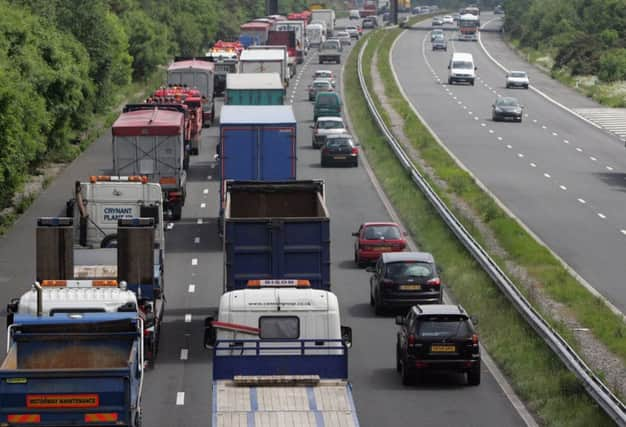Management of supply chain vital


Better logistics and supply chain management is vital for business success, but too few businesses are grasping the opportunities available. Customers are deserting high streets, businesses do not have resilient processes able to cope with events such as extreme weather, and the environmental and financial costs of transport are far too high. We need all organisations from large government agencies to small businesses managing their logistics and transport better.
Month after month retail sales figures highlight the inexorable rise in the use of e-commerce where we consumers continue to drive business change through our shopping preferences. We can be in no doubt that we are engaged in a supply chain revolution and it is the consumers who are driving the change whilst many businesses strive to play catch up. Of itself this situation is serious enough, yet we still see many businesses risking their reputation and future survival prospects as they fail to recognise the significance of effective supply chain leadership and management.
Advertisement
Hide AdAdvertisement
Hide AdSet against the overwhelming pressure to deliver you might think that every business would by now recognise that the management of its supply chain, which is at the forefront in matching consumer expectation with the ability to supply products and services, should be a priority but you would be wrong. A recent survey by Hitachi Consulting has suggested that 29 per cent of organisations see their supply chain as merely an operational function and 85 per cent don’t see their supply chain as a strategic business enabler.
Today’s supply chain leaders are the key element in providing insight, strategic direction and technical expertise as business strives to keep pace with consumer demand. It becomes ever more apparent that we need the very best business leaders running supply chain operations throughout industry as the global supply chain is in a state of constant change.
As living standards and the cost of labour rises in China manufacturing costs are rising, so supply chain professionals who are developing solutions including the “re-shoring” of manufacturing closer to consumer markets. A growing number of businesses are considering such action, including the maker of Raspberry Pi, the computer developed for schools, which has brought the majority of its manufacturing back to the UK to ensure supplies of high quality, cost effective products which will enable the business to continue to serve its customers.
Natural disasters are also a significant factor in supply chain management, not just because they are occurring more frequently, but because the demands of modern life place greater demands on reliability. These factors are driving changes in product supply plans and in today’s world of global competitiveness both from the consumer service perspective and from the product sourcing angle it is very clear that effective supply chain management is now a business strategy enabler. Any business that ignores or downplays its supply chain capability is facing a very uncomfortable and probably short future.
Former CILT president Professor Alan McKinnon of Heriot Watt and the Hamburg Kühne Logistics Universities identifies 85 measures that companies could take to reduce the carbon intensity of their freight transport operations.Firms have an extensive range of options that they can tailor to their particular operational needs reducing vehicle-km; those cutting fuel consumption per vehicle-km; and reducing emissions per litre.
The economic benefits of these measures generally outweigh the costs, making almost all the measures self-financing in the short to medium term. This close correlation between economic and environmental benefits is central to all sustainable logistics strategies and dispels the traditional notion that businesses have to sacrifice profits, growth and competitiveness to be green.
One of the main barriers to change has been that the potential for an individual company to improve its own logistics is constrained by the decisions and activities of its suppliers upstream and customers downstream. For example, opportunities for rescheduling deliveries into the evening and night when vehicles can achieve their most fuel-efficient speed are often obstructed by a supplier or customer. Better collaboration between companies vertically through the supply chain and horizontally between companies at the same level in the supply chain, for example able to reduce empty running, is overcoming these barriers but this means translating the leading practice into mainstream delivery.
That is why CILT sees its role as critical in supporting and training professionals throughout their careers so that we stop repeating the same mistakes. Our benchmarking clubs help businesses to learn from each other and our training and professional events are the places where people get together and initiate collaboration.
• Steve Agg is chief executive of CILT, the Chartered Institute of Logistics and Transport
SEE ALSO